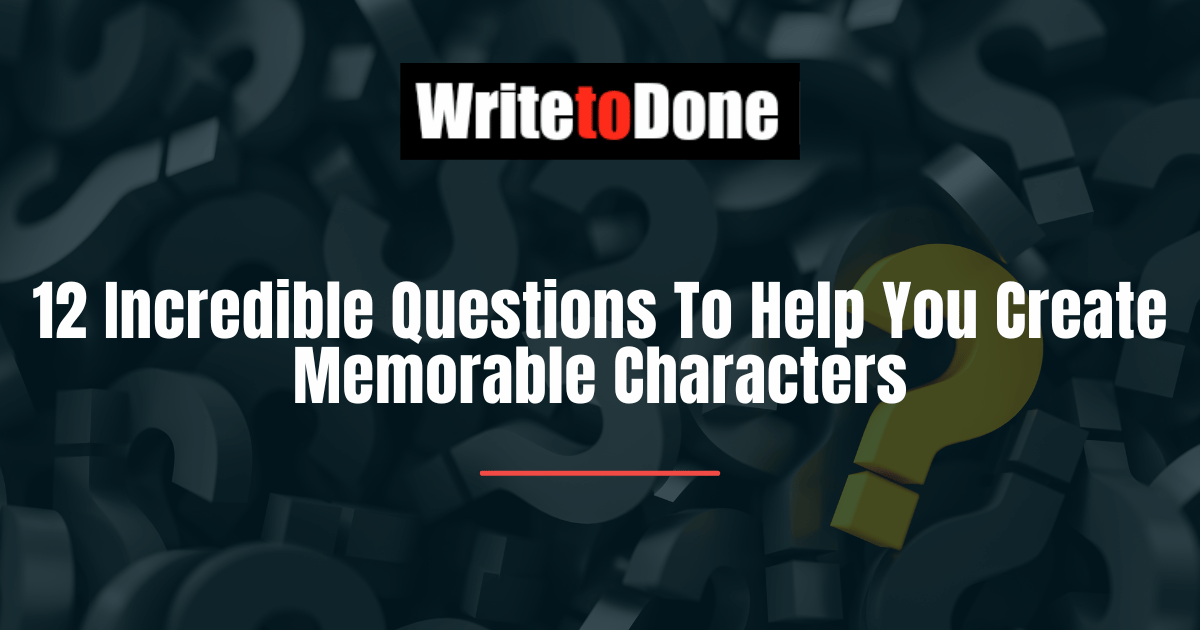Would you like to create memorable characters? Of course you would!
But where do great characters come from?
Are they great because of what they do, or because of what they say?
Suppose someone walks into a store and asks, “May I see what you have in a nice .30 caliber hollow point?”
If this character is a combat infantry squad leader or deer hunter, if his greatest achievements are his marksmanship and taking a life here and there, you’d expect that he’ll think of buying bullets and shooting something.
But what if it’s 87-year-old Sister Agatha, who’s had enough of the bishop’s meddling with her side business in the communion wine trade?
She’s someone I want to know more about!
What makes Elizabeth Bennett of Pride and Prejudice interesting?
It’s more than just her clever observations as a woman who won’t be treated with disrespect by a rich man; she is a clever woman wearing blinders, who discovered that it was she who was proud and prejudiced.
As for Monsieur Dantès of The Count of Monte Cristo, he sought (and got) revenge on those who buried him in the Chateau d’If, but didn’t know when to stop, becoming as bad as the people he hunted down and ruined.
Both became classic characters because the resolutions of their stories came with their realization of how wrong they had been all along.
They turned out to be different than who they, and we, thought they were.
They also turned out to be people that we think, deep inside, we could be.
This is a good place to restate the classic rule of character development: no hero should be without a flaw, no villain without a bit of good in his heart.
But to make them memorable, each must have something in their character that is different than our expectations, and theirs.
How do You Create the Most Memorable Characters Ever?
By making them real people.
Each character worthy of being in your story must be more than just a lawyer, computer whiz or gunnery sergeant.
The distinction is ‘who they are’ rather than ‘what they do for a living.’
To get the most from your main character, your main villain, and every character whose role advances your story, you need to ask them a few questions:
1. What is your most valued possession?
Hint: Think Gollum, and ring …
Or Elizabeth Bennett’s pride in Pride and Prejudice.
Okay, Gollum isn’t a person, but he is a character.
2. To whom would you give your prized possession? And who mustn’t be allowed to have it?
Gollum? Wouldn’t give it to anyone. No way Frodo can have it.
Miss Bennett? She hasn’t found the man worthy of being her mate. Not Mr. Darcy, for sure.
3. What do you consider your greatest achievement?
Tony Last, in A Handful of Dust by Evelyn Waugh, has done only one thing in life worth doing – fathering his son, John Andrew.
4. What is your greatest failure?
Tony thinks his greatest failure was teaching John Andrew to ride to the hounds, which results in John Andrew being thrown and killed.
As it happens, Tony’s greatest failure was learning to read.
To get away from his cheating wife, Tony goes on an expedition to the darkest Amazon jungle, is lost, and is rescued by a tribal chief who makes him read Charles Dickens’ novels aloud for the rest of his life!
5. If you suddenly became wealthy (or impoverished), what would you do?
As we saw above, the Count of Monte Cristo would set about taking revenge.
6. Whom do you credit or blame for being in your current position?
Enid Lambert, the long-suffering wife of tyrannical, puritanical Alfred, believes that her life will change if her estranged children would all just come home for Christmas before Alfred does her a favor and dies.
That, and if she can get some more Aslan to relieve her depression. That’s what she believes.
(From the book The Corrections by Jonathan Franzen).
7. Which event has brought you to where you are now?
Prior Phillip, in The Pillars of the Earth by Ken Follett, believes that he is where he is because he and his brother secretly raised a baby who was abandoned in the forest.
But actually, Phillip is caught between the larger forces of churchmen and nobles fighting for power after the loss at sea of the White Ship, that carried the prince and heir to his death.
Note that many of the questions you’re asking are answered one way by the character but differently by you, the author.
8. If you could go back in time, what would you do differently?
Tony Webster, in The Sense of An Ending by Julian Barnes, wrote a letter to his friend Adrian Finn, who then committed suicide.
Much later, he would wish that he hadn’t written it—or sent it.
But did Tony’s letter cause the suicide? Or was it inevitable? Does anyone ever know, really?
9. If you could save / take only one life, whom would you save or do in?
In Black Box by Jennifer Egan, the anonymous character becomes a spy—not for her country—but because doing so might save her husband.
Might.
10. What is your greatest secret?
Jake Barnes’ greatest secret–along with losing his generation–is losing his manhood (a.k.a. ‘private parts’) in Hemingway’s The Sun also Rises.
11. Who would you want never to learn your secret?
In Life of Pi by Yann Martel, Pi doesn’t want himself to learn his own secret, the true identity of the tiger with whom he shared a life boat.
And, finally, perhaps the most important of all:
12. What do you brood about when you’re alone at night?
“Mother liked him best,” Mr. Minot broods when he thinks about his brother in John Lanchester’s A Debt to Pleasure, a form of self-reflection that has unfortunate consequences for the family maid, the parents, a few girls along the way, and … the brother.
What now?
Now that you have the answers to these twelve questions, will you use them in your novel?
Probably not. At least, not as scenes within the story.
However, just like the rest of us, characters who are shaped by their beliefs and experiences become real. A lawyer who lies is a liar, not a lawyer. A computer whiz who steals from online accounts is a thief, not a computer whiz.
When you write a scene, your intimate knowledge of your characters will come through.
Their dialogue will reflect the language and speech patterns of a real human being. Their actions in the story are what they would do if alive, despite being entirely imaginary.
About Sister Agatha: I think she’s about to make a mess at mass.
What questions would you like to ask her? Share in the comments!
About the author:
Jack London is the author of A Novel Approach (To Writing Your First Book) and the award-winning books, French Letters: Virginia’s Wars and French Letters: Engaged in War. London earned degrees at the University of Texas and West Texas State University and studied creative writing at Oxford University.


















